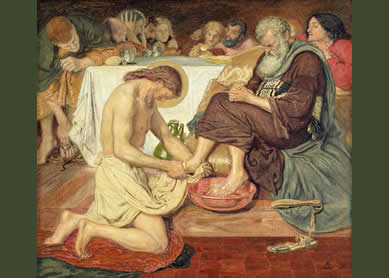According to Paul, the Corinthians appeared to be so enthusiastic about flashy spiritual gifts such as speaking in tongues that they missed the greater importance of love that undergirds all gifts. For Paul, God’s love is joined with truth (1Cor 13:6).
All the commands to love in the Bible can be summarized by Jesus’ answer to a lawyer’s question about the greatest commandment: “‘You shall love the Lord your God with all your heart, and with all your soul, and with all your mind.’ This is the greatest and first commandment. And a second is like it: ‘You shall love your neighbor as yourself.’ On these two commandments hang all the law and the prophets’” (Matt 22:36-40). Jesus is reaching back to the Israelites’ early years, to Deut 6:5 and Lev 19:18, which are the first love commandments to care for others by caring for the poor and the stranger and by not stealing, lying, deceiving, disrespecting the deaf and blind, oppressing workers, slandering, killing, hating, taking vengeance, bearing a grudge (Lev 19:9-18), or otherwise being unjust. Instead, because they had been strangers and oppressed in Egypt, the Israelites were to love their neighbors as themselves (Lev 19:9-18). To act right and not oppress a neighbor is to love the neighbor.
The God of the Israelites is unique and therefore to be treated uniquely. One aspect of this uniqueness, compared to ancient Near Eastern deities, is God’s ability to love (Deut 5:8-10). The Hebrew Bible employs two principle words for “love.” Humans are exhorted to “love” (’ahav, verb; ’ahavah, noun) God because God shows “love” (hesed) to humans (Exod 20:6, Deut 5:10). Hesed is a stronger term for “love” than ’ahavah. Hesed can result in saving a life and entails generous and favorable acts, such as angels saving Lot and his family from destruction (Gen 19:9-19). It includes Sarah’s sacrificial love to preserve Abraham’s life (Gen 20:11-13). ’Ahavah, too, can include sacrificial love, such as Jacob’s for Rachel (Gen 29:18-20, Gen 29:30). But ’ahavah can also result in destructive action, as with Amnon’s rape of Tamar (2Sam 13:1, 2Sam 13:4, 2Sam 13:14).
Love is an important part of God’s covenant with Israel; it is a human response to God’s love and mercy. When Moses descends from Mount Sinai a second time with the newly engraved tablets of commandments, he summarizes what God requires of the Israelites: they are to 1) fear the Lord, 2) walk in all his ways, 3) love him, 4) serve the Lord, and 5) keep the commandments of the Lord (Deut 10:12-13). Every repetition of this summary by Moses prioritizes the command to love God (Deut 11:1-22, Deut 19:9, Deut 30:16-20, Josh 22:5). Love is intimately tied to obeying God.
Jesus continues the earlier covenant’s emphasis on love of God, which includes obedience: “If you love me, you will keep my commandments” (for example, John 14:15-24). Jesus gives his disciples a “new” commandment, “that you love one another.” How can loving one another be new when love is a major theme of the earlier covenant? Jesus clarifies (after just having washed his disciples’ feet): “Just as I have loved you, you also should love one another. By this everyone will know that you are my disciples, if you have love for one another” (John 13:34-35). Jesus’ sacrificial love defines the meaning of love. Jesus laid down his life for others (1John 3:16; Eph 5:2). His new commandment is to love as Jesus loved (and as God has loved Israel, with hesed). Such love is a sign to others of God’s covenant.





